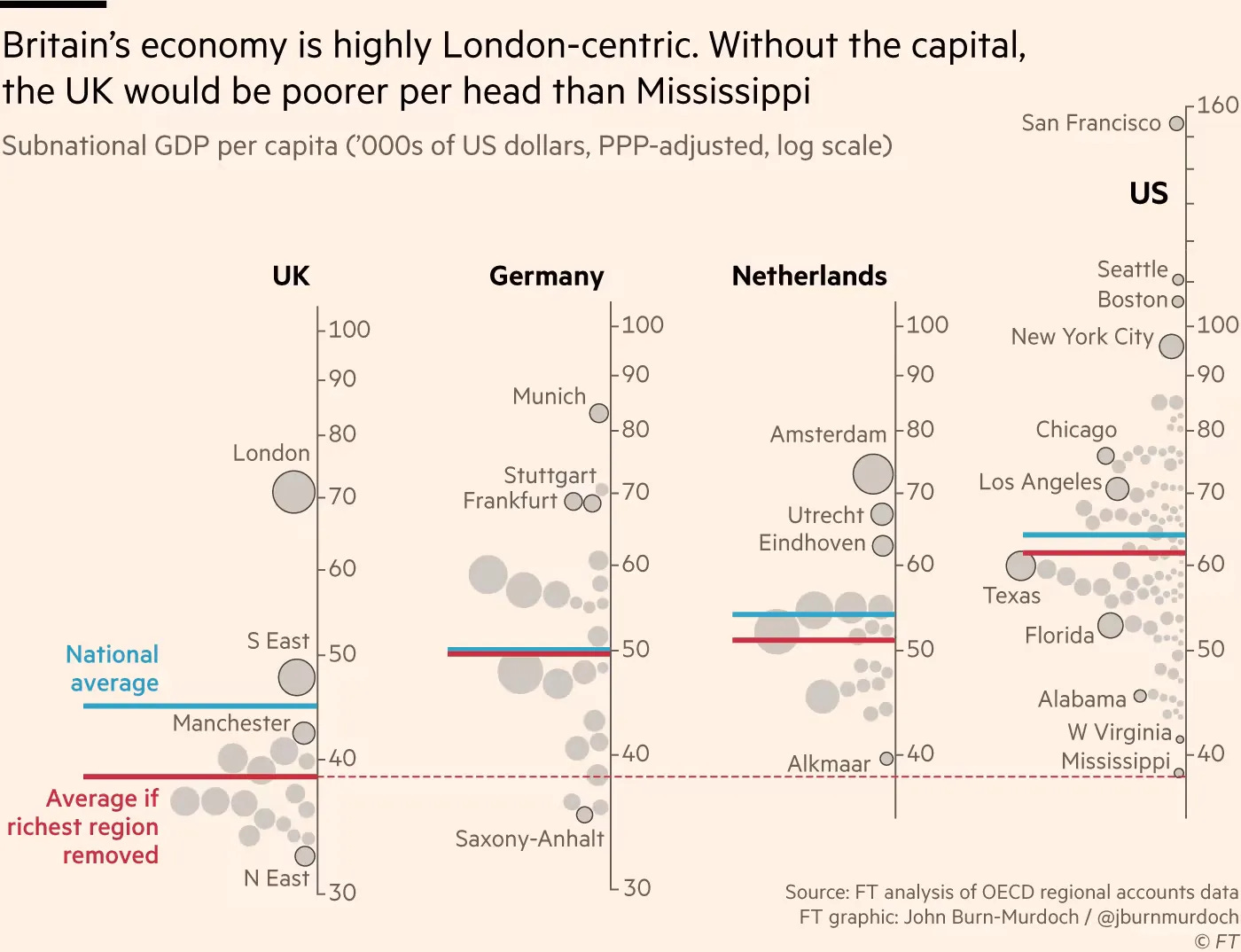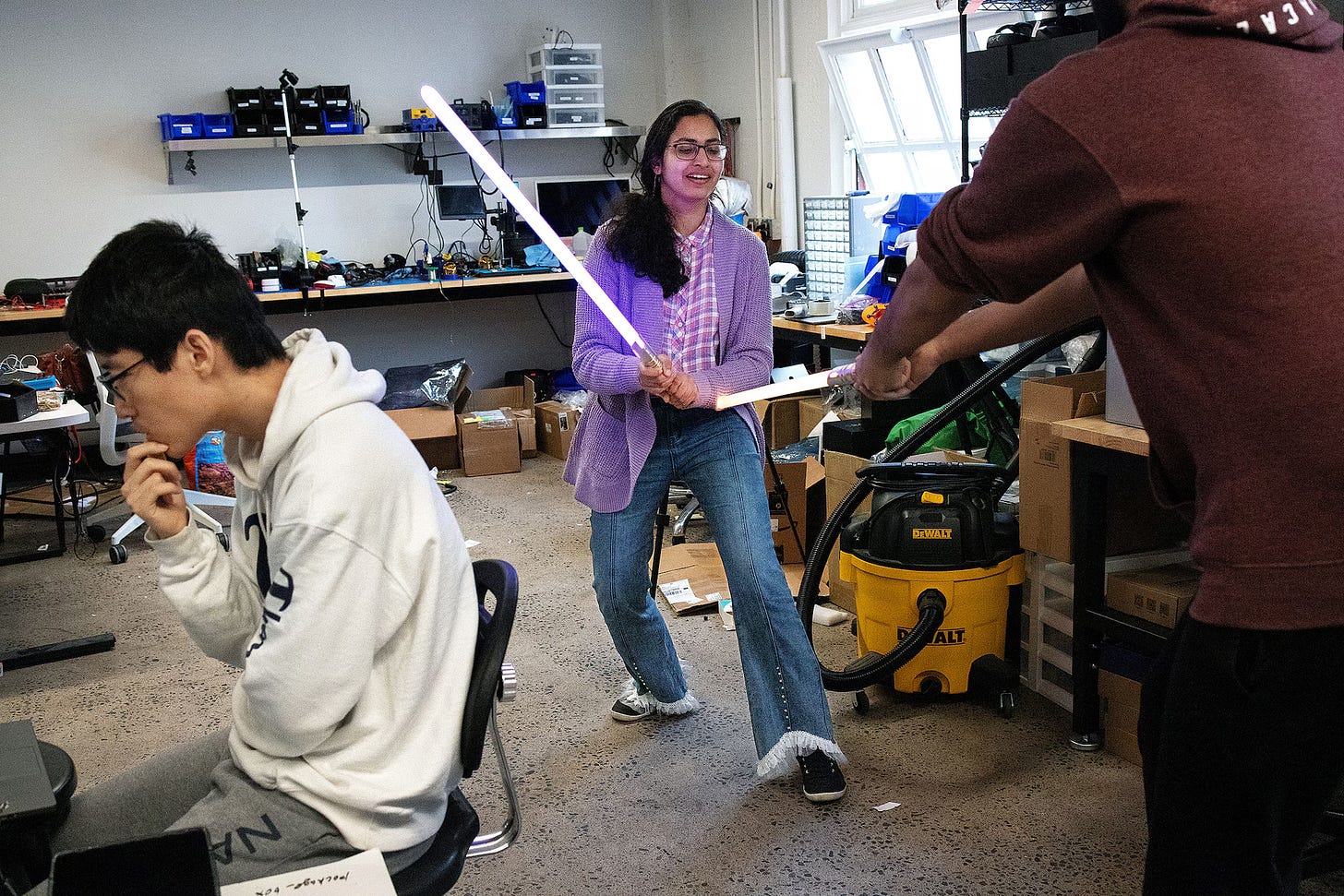Weekly Groundings are published every Friday to highlight the most interesting news, links, and writing I investigated during the past week. They are designed to ground your thinking in the midst of media overload and contribute to Handful of Earth’s broader framework. Please subscribe if you’d like to receive these posts directly in your inbox.
“You Saved Julian Assange”
writes on the significance of Julian Assange’s freedom for : “They tried over and over and over to destroy him. They failed. But Julian was not released because the courts defended the rule of law and exonerated a man who had not committed a crime. He was not released because the Biden White House and the intelligence community have a conscience. He was not released because the news organizations that published his revelations and then threw him under the bus, carrying out a vicious smear campaign, pressured the U.S. government. He was released — granted a plea deal with the U.S. Justice Department, according to court documents — in spite of these institutions. He was released because day after day, week after week, year after year, hundreds of thousands of people around the globe mobilized to decry the imprisonment of the most important journalist of our generation. Without this mobilization, Julian would not be free.”Hedges continues: “State surveillance is far more intrusive than that employed by past totalitarian regimes. Critics and dissidents are easily marginalized or silenced on digital platforms. This totalitarian structure — the political philosopher Sheldon Wolin called it ‘inverted totalitarianism’ — is being imposed by degrees. Julian warned us. As the power structure feels threatened by a restive population that repudiates its corruption, amassing of obscene levels of wealth, endless wars, ineptitude and mounting repression, the fangs it exposed to Julian will be exposed to us.”
“Hinduja Family Members Sentenced to Jail for Exploiting Domestic Staff”
The Financial Times reports that “Four members of the multi-billionaire Hinduja clan, the UK’s wealthiest family, have been convicted of exploiting their domestic staff and sentenced to lengthy jail terms by a court in Geneva.”
The article continues: “In a week of explosive revelations, Geneva’s public prosecutor accused Prakash, Kamal, Ajay and Namrata [Hinduja] of treating their employees as indentured servants. They were accused of keeping the staff trapped at a villa in the ultra-exclusive Geneva lakeside suburb of Cologny, where they slept in substandard conditions in basement rooms. The workers were paid less than one-tenth of the salary they were entitled to under Swiss law, according to the prosecutor Bertossa. One servant was paid just 7 Swiss francs a day, and worked as many as 18 hours, 7 days a week, Bertossa alleged. The family dog had more than three times as much spent on it, according to documents seized by police and presented to the court.”
“Prakash is the second of three brothers behind the Hinduja Group, a sprawling multinational conglomerate with interests in everything from cars and petrochemicals to banking and armaments. His older brothers Gopichand and Srichand settled in London in the 1980s and made it the centre of the group’s affairs.”
“The Great British Betrayal”
delves into the transformation of London in the 1980s at his eponymous Substack: Besides “allowing the growth of financial services in London, the deregulation of successive Thatcherite-Blairite governments has made London an enormous centre of speculation. Property in London has become an especially popular commodity for the world’s elites to speculate on. In 2015, it was reported that non-resident buyers had spent over £100 billion on UK property in the previous six years. Foreign buyers now account for 41% of activity on the London property market. Many of the high end residential properties snapped up by oligarchs are left empty — London now has over 34,000 homes classified as ‘long-term vacant.’ Hearing that London is both a booming financial centre and the top destination for the world’s super rich, anyone would be forgiven for assuming that this is an unmitigated good for the UK’s economy. But there is good evidence that the London financial centre has become a black hole on the rest of Britain and its more traditional economy.” Woods draws on reporting by The Financial Times to argue that “Britain is poor country with one very rich region. Data…shows that removing London would take 14% off average British living standards, enough to leave the remainder of Britain poorer than every state in the US”:
“A Peek Inside San Francisco’s AI Boom”
Freelance photographer Laura Morton documents the culture surrounding the generative AI boom in Silicon Valley for The Washington Post: “In the past year and a half, entrepreneurs from around the world have flocked to San Francisco to be part of this AI revolution. Many start-up founders and their teams live and work together so they can focus intently on building their companies. And evenings like the AI hackathon I visited in March 2023 have become Silicon Valley’s idea of fun.”
The photo-essay is well worth reading in full, but here are a couple highlights that capture the character of the cosmopolitan and technotopian AI bonanza in the Bay Area. The caption for the following photo reads: “Kelly Peng, the CEO and co-chief technology officer of Kura Technologies, and Yosun Chang, right, use Apple Vision Pros while they prepare to present at a robot hackathon at the Hillsborough AGI House in February 2024. That night, Peng, who lives at the house, showed off a telepresence robot, shown bottom left, that she and her team built. When paired with augmented-reality glasses, the robot can allow someone to visit a place virtually”:
This photo’s caption states: “Apoorva Mahajan, center, and Mo Mahmood, right, take a break for a lightsaber battle in the hardware lab at Founders Inc., a start-up incubator in San Francisco in March 2023. At the time, Mahajan was working on a brain-computer interface device and Mahmood was working at a robotics company”:
For more on the origins and development of Silicon Valley, see my piece, “Why Criticize Big Tech?”
“Chinese Tech Companies Push Staff to the Limit”
Meanwhile, “As executives across China’s tech industry face a new reality of low growth, rising competition and investor apathy, many are cutting staff and making tougher demands of those they keep,” according to The Financial Times.
“‘Many people in this industry experience some degree of depression, the pressure on us is very high,’ said one China-based TikTok employee, who stated she was on and off medication for mental health issues. TikTok’s global presence meant work never ended, she said. ‘I often attend meetings in the middle of the night.’ The 31-year-old said the demanding culture at parent company ByteDance was more stressful than the long hours. She referred to it as neijuan, a term widely used in China to describe the relentless competition to outdo peers.”
In the following photo, employees nap during their lunch break at Tencent in Guangzhou, China:
“The Dangers of Digital Immortality”
Carl Öhman tackles the topic of digital resurrection for the Institute of Arts and Ideas: “In 2022, Amazon announced that they had developed a feature that enabled Alexa to speak in the voice of a deceased relative. They even made a promotional video for it, in which a boy asks Alexa to read a story in the voice of his departed grandmother. Even Microsoft has filed a patent for a similar idea. While these services still have a limited user base in the West, the phenomenon is gaining considerable traction in…, China, where dozens of firms offer various forms of digital resurrection—from interactive chatbots to virtual avatars. And as the public grows increasingly comfortable with chatbot interaction in everyday life, it is plausible that digital resurrection will become a more integrated part of a mainstream grieving process.”
Öhman argues that “digital remains are not just a representation of the dead—they are the dead, an informational corpse still constitutive of a personal identity. Though this may not enable them to experience harm, their ethical status is nevertheless that of a human, which grants them certain a right to be treated with dignity. As already explained by Kant, humans belong to the kingdom of ends, and so, insofar as the digital dead are still entitled to a degree of humanness, they should also be regarded as ends in themselves. They may be (narrative) objects void of any subjective experience, but not just any kind of objects—they are human objects, which gives grants them the right to be treated as more than solely as a means to an end.
He concludes that “Commercializing digital remains is wrong, not only because it may trap mourners in perpetual grief but because it fails to appreciate the humanness of the dead. Shaping the interaction with digital remains so that it appeals to the demands of the market may please mourners in their role as consumers, but at the cost of corrupting the informational identity of the deceased person.”
What grounded your thinking this week? Feel free to share in the comments.






